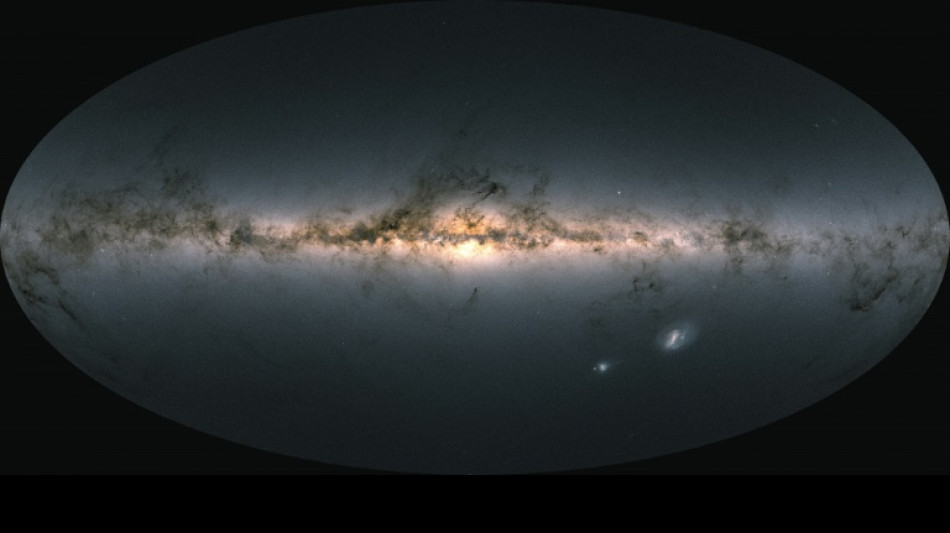
-
 US suspends visas for Gazans after far-right influencer posts
US suspends visas for Gazans after far-right influencer posts
-
Defending champ Sinner subdues Atmane to reach Cincinnati ATP final

-
 Nigeria arrests leaders of terror group accused of 2022 jailbreak
Nigeria arrests leaders of terror group accused of 2022 jailbreak
-
Kane and Diaz strike as Bayern beat Stuttgart in German Super Cup

-
 Australia coach Schmidt hails 'great bunch of young men'
Australia coach Schmidt hails 'great bunch of young men'
-
Brentford splash club-record fee on Ouattara

-
 Barcelona open Liga title defence strolling past nine-man Mallorca
Barcelona open Liga title defence strolling past nine-man Mallorca
-
Pogba watches as Monaco start Ligue 1 season with a win

-
 Canada moves to halt strike as hundreds of flights grounded
Canada moves to halt strike as hundreds of flights grounded
-
Forest seal swoop for Ipswich's Hutchinson

-
 Haaland fires Man City to opening win at Wolves
Haaland fires Man City to opening win at Wolves
-
Brazil's Bolsonaro leaves house arrest for medical exams

-
 Mikautadze gets Lyon off to winning start in Ligue 1 at Lens
Mikautadze gets Lyon off to winning start in Ligue 1 at Lens
-
Fires keep burning in western Spain as army is deployed

-
 Captain Wilson scores twice as Australia stun South Africa
Captain Wilson scores twice as Australia stun South Africa
-
Thompson eclipses Lyles and Hodgkinson makes stellar comeback

-
 Spurs get Frank off to flier, Sunderland win on Premier League return
Spurs get Frank off to flier, Sunderland win on Premier League return
-
Europeans try to stay on the board after Ukraine summit

-
 Richarlison stars as Spurs boss Frank seals first win
Richarlison stars as Spurs boss Frank seals first win
-
Hurricane Erin intensifies to 'catastrophic' category 5 storm in Caribbean
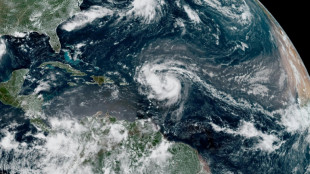
-
 Thompson beats Lyles in first 100m head-to-head since Paris Olympics
Thompson beats Lyles in first 100m head-to-head since Paris Olympics
-
Brazil's Bolsonaro leaves house arrest for court-approved medical exams

-
 Hodgkinson in sparkling track return one year after Olympic 800m gold
Hodgkinson in sparkling track return one year after Olympic 800m gold
-
Air Canada grounds hundreds of flights over cabin crew strike

-
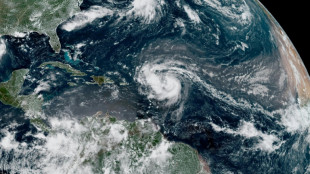 Hurricane Erin intensifies to category 4 storm as it nears Caribbean
Hurricane Erin intensifies to category 4 storm as it nears Caribbean
-
Championship leader Marc Marquez wins sprint at Austrian MotoGP

-
 Newcastle held by 10-man Villa after Konsa sees red
Newcastle held by 10-man Villa after Konsa sees red
-
Semenyo says alleged racist abuse at Liverpool 'will stay with me forever'

-
 Pakistan rescuers recover bodies after monsoon rains kill over 340
Pakistan rescuers recover bodies after monsoon rains kill over 340
-
In high-stakes summit, Trump, not Putin, budges

-
 Pakistan rescuers recover bodies after monsoon rains kill 340
Pakistan rescuers recover bodies after monsoon rains kill 340
-
Hurricane Erin intensifies to category 3 storm as it nears Caribbean
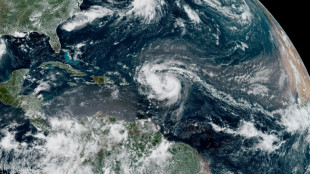
-
 Ukrainians see 'nothing' good from Trump-Putin meeting
Ukrainians see 'nothing' good from Trump-Putin meeting
-
Pakistan rescuers recover bodies after monsoon rains kill 320

-
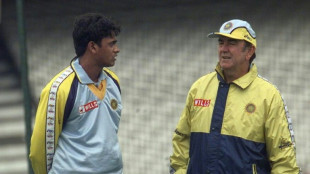 Bob Simpson: Australian cricket captain and influential coach
Bob Simpson: Australian cricket captain and influential coach
-
Air Canada flight attendants strike over pay, shutting down service

-
 Air Canada set to shut down over flight attendants strike
Air Canada set to shut down over flight attendants strike
-
Sabalenka and Gauff crash out in Cincinnati as Alcaraz survives to reach semis

-
 Majority of Americans think alcohol bad for health: poll
Majority of Americans think alcohol bad for health: poll
-
Hurricane Erin intensifies in Atlantic, eyes Caribbean
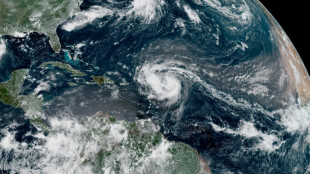
-
 Louisiana sues Roblox game platform over child safety
Louisiana sues Roblox game platform over child safety
-
Trump and Putin end summit without Ukraine deal

-
 Kildunne confident Women's Rugby World Cup 'heartbreak' can inspire England to glory
Kildunne confident Women's Rugby World Cup 'heartbreak' can inspire England to glory
-
Arsenal 'digging for gold' as title bid starts at new-look Man Utd

-
 El Salvador to jail gang suspects without trial until 2027
El Salvador to jail gang suspects without trial until 2027
-
Alcaraz survives to reach Cincy semis as Rybakina topples No. 1 Sabalenka

-
 Trump, Putin cite progress but no Ukraine deal at summit
Trump, Putin cite progress but no Ukraine deal at summit
-
Trump hails Putin summit but no specifics on Ukraine

-
 Trump, Putin wrap up high-stakes Ukraine talks
Trump, Putin wrap up high-stakes Ukraine talks
-
El Salvador extends detention of suspected gang members


Space telescope Gaia sent into 'retirement' but legacy endures
Europe's Gaia space telescope was powered down and sent into "retirement" on Thursday after a decade revealing the secrets of the Milky Way, but its observations will fuel discoveries for decades to come.
Since launching in 2013, the telescope has been charting the positions, motion and properties of nearly two billion stars to create an unparalleled map of our home galaxy, according to the European Space Agency.
Gaia has been peering into the universe from a stable orbit 1.5 million kilometres (930,000 miles) from Earth called the second Lagrange point.
But the neighbourhood has been getting more crowded with the recent arrivals of the powerful James Webb and Euclid space telescopes.
To avoid causing any problems for the new kids on the block, the ESA's team on the ground ordered Gaia's engines to give a final push on Thursday that will take the spacecraft into a distant orbit around the Sun.
This "retirement orbit" will make sure the spacecraft will remain at least 10 million kilometres from Earth for the next century.
Over nearly 11 years, Gaia has uncovered evidence of massive galaxies slamming into each other, identified vast clusters of stars, helped discover new exoplanets and mapped millions of galaxies and blazing galactic monsters called quasars.
A study last year using Gaia data identified two streams of ancient stars at the Milky Way's heart thought to have formed around the galaxy's birth more than 12 billion years ago.
According to astronomers using Gaia, the Milky Way then swallowed other dwarf galaxies as it grew -- notably one called Gaia-Enceladus around 10 billion years ago.
Our home galaxy is still slowing devouring the Sagittarius dwarf galaxy, Gaia helped reveal.
The telescope also spotted more than 50 dwarf galaxies orbiting the Milky Way. Inside the galaxy, it tracked down 150,000 asteroids and detected several dozen black holes.
- Final goodbye -
On Thursday, ESA engineers in Germany disconnected -- one-by-one -- all the satellite's systems that allow it to survive the perils of space, such as radiation storms or being struck by tiny meteorites.
"The spacecraft are designed so that they cannot be killed -- it is very difficult to disconnect them," ESA operations engineer Tiago Nogueira told AFP.
The team at the European Space Operations Centre in the city of Darmstadt then shut down Gaia's instruments before corrupting its on-board software.
Finally, they said their last goodbye, deactivating the spacecraft's communication system and central computer.
But Gaia's mission will continue back on Earth.
Scientists are still sifting through the deluge of data the telescope sent back, and are expected to deliver its fourth catalogue of the stars in 2026.
The final catalogue -- which will encompass 10 and a half years of observations -- is expected around 2030.
Ultimately, Gaia's catalogue "will serve as a reference for astronomy for at least 30 to 40 years," Gaia engineer Jose Hernandez told AFP.
This means that even as Gaia distantly orbits the Sun in silence, what it observed will be feeding new discoveries for future generations.
Some of the astronomers who will make these breakthroughs using Gaia's data are "still in primary school," Hernandez said.
I.Saadi--SF-PST
